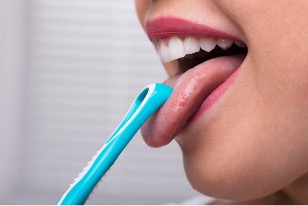Maintaining optimal oral hygiene is crucial for overall health and well-being. Good oral care not only keeps your smile bright but also prevents a range of dental and systemic health issues.
In this issue, we will highlight effective brushing and flossing techniques, the role of mouthwash, and the importance of tongue cleaning.
Effective Brushing Techniques
Brushing your teeth properly is the cornerstone of good oral hygiene. The American Dental Association (ADA) recommends brushing twice a day with fluoride toothpaste. Here are key techniques for effective brushing:
- Use the Right Toothbrush: Choose a soft-bristled toothbrush that fits comfortably in your mouth. Electric toothbrushes can be more effective in reducing plaque and gingivitis.
- Correct Brushing Motion: Hold the toothbrush at a 45-degree angle to your gums. Use gentle, circular motions rather than harsh back-and-forth strokes, which can damage enamel and gums.
- Brush All Surfaces: Ensure you brush the outer, inner, and chewing surfaces of each tooth. Don’t forget the back molars where plaque tends to accumulate.
- Timing Matters: Brush for at least two minutes each session. Consider dividing your mouth into quadrants, spending 30 seconds on each.
- Replace Your Toothbrush: Change your toothbrush every 3-4 months or sooner if the bristles are frayed.
The Importance of Flossing
Flossing complements brushing by removing plaque and food particles between teeth where a toothbrush can’t reach. Effective flossing involves:
- Using the Right Technique: Use about 18 inches of dental floss, winding most around your middle fingers. Gently slide the floss between teeth using a sawing motion.
- Curving the Floss: Curve the floss into a C-shape against each tooth, sliding it beneath the gumline to remove debris and plaque effectively.
- Be Gentle: Avoid snapping the floss, which can injure the gums. Use a clean section of floss for each tooth.
The Role of Mouthwash
Mouthwash serves as an adjunct to brushing and flossing, offering several benefits:
- Reduces Plaque and Gingivitis: Antimicrobial mouthwashes help reduce bacteria that cause plaque and gum disease.
- Freshens Breath: Mouthwash can temporarily mask bad breath and reduce odor-causing bacteria.
- Strengthens Enamel: Fluoride-containing mouthwashes help strengthen enamel and prevent tooth decay.
For maximum benefit, choose an ADA-approved mouthwash and follow the instructions on the label.
The Importance of Tongue Cleaning
The tongue harbors bacteria that contribute to bad breath and plaque buildup. Incorporate tongue cleaning into your routine by:
- Using a Tongue Scraper or Toothbrush: Gently scrape or brush from the back of the tongue forward.
- Regular Cleaning: Clean your tongue daily, preferably during your brushing routine.
Good oral hygiene practices—effective brushing, diligent flossing, using mouthwash, and cleaning your tongue—are essential for maintaining a healthy mouth. Regular dental check-ups and a balanced diet also play critical roles. Embrace these best practices for a confident, radiant smile.
Dr. Kendal V. O. Major is Founder and CEO of Center for Specialized Dentistry which is a comprehensive family dental practice operating in Nassau and Freeport. He is the first Bahamian Specialist in gum diseases and dental implants since 1989. He also is a certified Fast braces provider. His practice is located at 89 Collins Avenue, Nassau at (242)325-5165 or [email protected]

This Technique for Manual Brushing and should capture most of the teeth surfaces

Note 45 degree angle to get to the area between teeth and gums

Proper flossing allows you get to surfaces in between the teeth

Tongue scraper is the best tool to clean tongue





